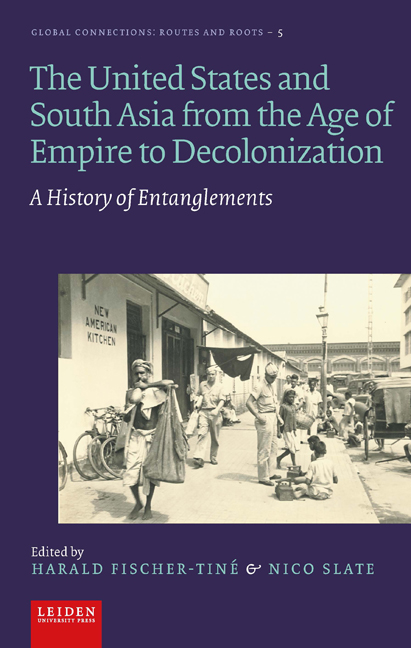 The United States and South Asia from the Age of Empire to Decolonization
The United States and South Asia from the Age of Empire to Decolonization Published online by Cambridge University Press: 07 January 2025
Abstract Using age as a key analytical category and building on recent research on childhood and colonialism, the chapter analyzes the activities of the Indian YMCA's ‘Boys’ branches’ established in all major Y branches in India, Burma and Ceylon between 1901 and 1950. The Y's boys’ work scheme, designed to channel the energy of Indian males in the age group 10-17 into the healthy direction of ‘useful manhood’, reached the peak of its influence during the two decades preceding the independence in 1947. The chapter reconstructs the wider transnational trends that led to the Y's increased attention to boys rather than young adults. The focus is on the medico-sociological American discourse of ‘boyology’, a specific body of educational and disciplinary knowledge that emerged around the turn of the twentieth century and was designed to solve the so-called ‘boy problem. The influence of U.S. boyology can be discerned in contemporary manuals designed for social workers and educators in South Asia as well as in their practical programs.
Keywords: YMCA, Indian nationalism, American Missionaries, boyology, history of childhood and youth, scouting
Echoing a global tendency among Christian and secular organisations that became discernible shortly before the First World War, the largely US-led and financed Indian Young Men's Christian Association (YMCA) launched a separate Boys’ Department in the first decade of the twentieth century. It gradually widened the scope of its activities in order to attract young males aged ten to seventeen. This trend gained further momentum during the interwar period, when boys’ work became increasingly popular not only in North America, but in various ideological and political quarters all over the globe. In the South Asian YMCA branches, it reached the peak of its influence in the two decades preceding the independence of India and Pakistan in 1947.
In this chapter, I will first reconstruct the wider transnational trends that led to the new focus on boys. I will then flesh out the genesis and specificities of the Indian Y's boys’ work schemes. In this context, I introduce the two main pillars of the association's secular program for boys, namely ‘physical work’ and camping and scouting, and discuss their ambivalent relationship with Indian nationalism. This analysis of these “adult-sponsored children's leisure activities” places particular emphasis on the way YMCA boy experts oscillated between an idiom of universalism and the impact of cultural and racial stereotyping.
To save this book to your Kindle, first ensure [email protected] is added to your Approved Personal Document E-mail List under your Personal Document Settings on the Manage Your Content and Devices page of your Amazon account. Then enter the ‘name’ part of your Kindle email address below. Find out more about saving to your Kindle.
Note you can select to save to either the @free.kindle.com or @kindle.com variations. ‘@free.kindle.com’ emails are free but can only be saved to your device when it is connected to wi-fi. ‘@kindle.com’ emails can be delivered even when you are not connected to wi-fi, but note that service fees apply.
Find out more about the Kindle Personal Document Service.
To save content items to your account, please confirm that you agree to abide by our usage policies. If this is the first time you use this feature, you will be asked to authorise Cambridge Core to connect with your account. Find out more about saving content to Dropbox.
To save content items to your account, please confirm that you agree to abide by our usage policies. If this is the first time you use this feature, you will be asked to authorise Cambridge Core to connect with your account. Find out more about saving content to Google Drive.